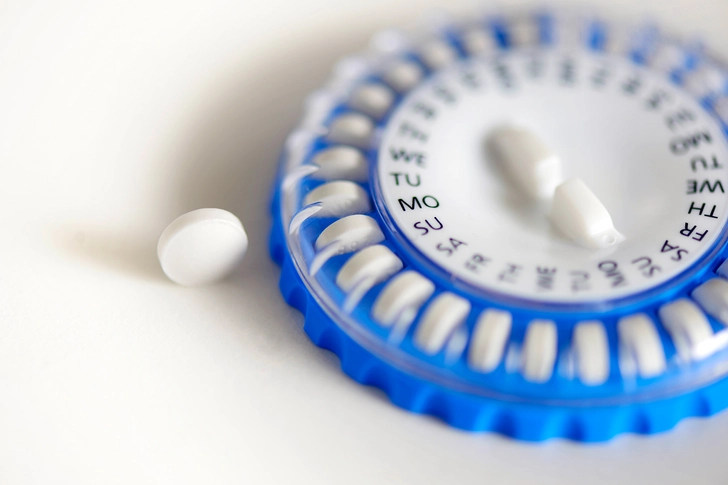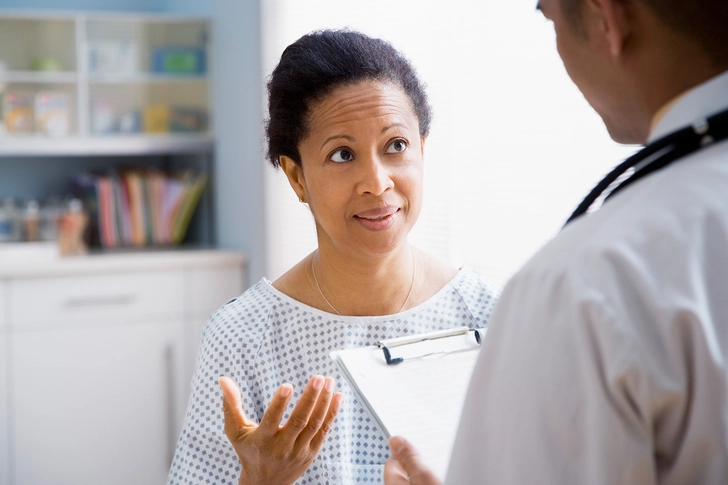- Headaches Overview
- Migraine
- Cluster & Tension Headaches
- Other Types of Headaches
- Appointment Prep
- View Full Guide
9 Tips to Manage Migraines During Perimenopause or Menopause



How Menopause Impacts Migraine
Research shows a strong link between your hormones and migraine. The good news is that after menopause (when your periods stop for good), migraine attacks often become less frequent and intense. But perimenopause, when your body begins to slowly shift into menopause, can actually make migraine worse. You can keep hormone-related symptoms from triggering episodic migraines, and work to take care of yourself when they do happen.

Keep Track of Your Cycle
Before menopause, you can go through perimenopause for four to eight years. During this stage, you'll still have periods, but they could be heavier or less regular than before. Keep track of when you do get your period, along with your migraine days and symptoms. This can help your doctor see the role that your changing hormones play and decide if they need to adjust your migraine treatment plan.

Balance Your Hormones
Low estrogen can trigger a migraine. It can also cause frustrating symptoms like mood swings and insomnia. Hormone replacement therapy (HRT) replaces the estrogen your body no longer makes. That can improve menopause symptoms, and it may help with migraine. Talk to your doctor about HRT. They'll discuss your options and whether the benefits outweigh the risks. They may also suggest other treatments. Sometimes, HRT can make migraine worse.

Keep Cool
Hormone shifts can cause uncomfortable hot flashes and night sweats. These sudden body temperature changes can stress you out and keep you from sleeping, setting you up for an episodic migraine. To prevent hot flashes, limit spicy foods, hot drinks, alcohol, and caffeine. Dress in layers you can quickly remove. At night, wear lightweight pajamas and use light blankets on your bed. Sleep with a fan and keep an ice pack handy.

Ask Your Doctor About Supplements
If over-the-counter migraine and menopause remedies sound too good to be true, they probably are. They aren't regulated by the FDA, so you can't be sure what's in them or if they work. Talk to your doctor about supplements that could help. For instance, riboflavin (vitamin B2) may prevent migraines and protect your health during menopause. Magnesium supplements may also help relieve both migraine and menopause symptoms.

Keep Moving
Exercise can help make migraines less frequent and intense. It can also ease hormonal symptoms like joint pain and mood swings. Different workouts offer their own benefits. For instance, walking or biking is good for your heart. Pilates and tai chi improve balance and help keep you flexible. Lifting weights or using resistance bands builds strength. Low-impact activities like gardening count, too. Find activities you enjoy so you do them often.

Get Enough Rest
You need sleep to help prevent migraines, but hormone changes can get in the way. Insomnia is a common menopause symptom, and night sweats and needing to pee more can also keep you up. To get enough rest, try to go to bed and wake up at the same time every day. Cut out alcohol and caffeine before bed. Instead, create a calm nighttime routine like listening to music, reading, or meditating. Still can't sleep? Talk to your doctor.

Get Support
Living with migraine and perimenopause/menopause can take a toll on your mental health. Connecting with others can make a difference. Join a support group or seek out advice through online forums. Keep in regular touch with your doctor and let them know when you feel overwhelmed. Studies show that cognitive behavioral therapy (CBT) – a kind of talk therapy – can also help improve migraine and menopause symptoms.

Manage Fatigue
It's common to feel wiped out after an episodic migraine. Fatigue can also be a menopause symptom. Take care of yourself when you're exhausted. Drink plenty of water and eat healthy foods like fruits, vegetables, lean protein, and whole grains. It might feel good to use a heating pad or do light exercise, like a gentle yoga class. Don't try to "power through" fatigue. Doing so could bring on another migraine attack.

Take Things Day by Day
You can't predict how perimenopause or menopause will affect your migraines. Everyone is different. Remember, these hormone changes are a natural part of aging. They shouldn't feel painful or derail your life. Let your doctor know how you're doing. They know your health best and can suggest medications, lifestyle changes, or other treatments that can make you more comfortable.
IMAGES PROVIDED BY:
- iStock/Getty Images
- nigelcarse/Getty Images
- Peter Dazeley/Getty Images
- iStock/Getty Images
- iStock/Getty Images
- Thomas Barwick/Getty Images
- E+/Getty Images
- E+/Getty Images
- Moment/Getty Images
- The Image Bank/Getty Images
SOURCES:
Association of Migraine Disorders: "Migraine During Perimenopause and Menopause."
HealthyWomen.org: "Perimenopause and Migraine Disease."
Cleveland Clinic: "Perimenopause," "Migraine Hangover; Postdrome," "How To Find Relief for Hot Flashes at Night," "Hormone Therapy for Menopause Symptoms," "What to Expect In Each Stage of Menopause."
Swan Study: "Effects of Sleep Problems During Menopause."
American Migraine Foundation: "Migraine and Exercise," "Sleep, Insomnia, and Migraine," "The Relationship Between Migraine and Mental Health," "Migraine Through a Woman's Life."
University of Rochester Medical Center: "Why Exercise Is Essential During Menopause."
Harvard Health: "Menopause Supplements: Effective Relief or Empty Promises?"
National Institutes of Health: "Riboflavin."
NFS Journal: "Effect of magnesium supplementation on women's health and well-being."
American Headache Society: "Incorporating Nutraceuticals For Migraine Prevention."
UW Medicine: "Yes, Menopause Impacts Mental Health."
Mayo Clinic: "Support groups: Make connections, get help."
Medicina: "Cognitive Behavioral Therapy for Migraine Headache: A Systematic Review and Meta-Analysis."
Women's Health Concern: "Cognitive Behavior Therapy (CBT) for Menopausal Symptoms."
National Health Service (U.K.): "Menopause: Why Do I Feel Fatigued?"
ACOG: "An Ob-Gyn's Top Tips for Managing Hot Flashes."
The Migraine Trust: "Migraine attack triggers," "Migraine and Hormones."